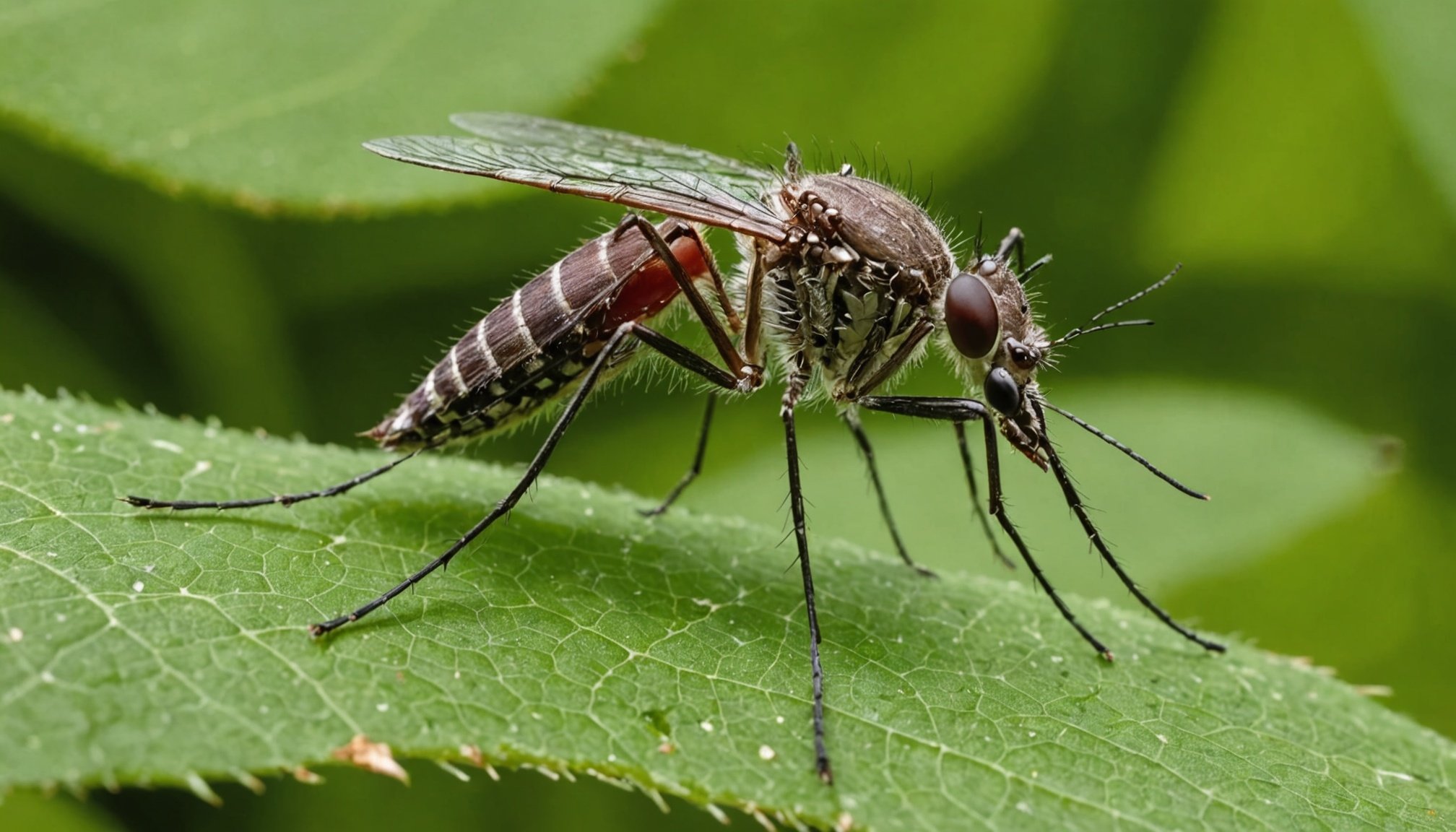Unveiling Green Approaches for Effective Mosquito Control in Your Garden Ecosystem
Understanding the Mosquito Menace
Mosquitoes are more than just a nuisance; they are vectors of several debilitating and sometimes deadly diseases, including dengue, chikungunya, and Zika. The rise of mosquito-borne diseases has made mosquito control a critical aspect of public health and personal well-being. However, traditional methods involving chemical insecticides have proven to be less effective in the long run due to the development of insecticide resistance and their harmful impact on the environment.
Surveillance and Treatment of Larval Sites
One of the most effective green approaches to mosquito control is the surveillance and treatment of larval sites. Mosquitoes breed in standing water, so identifying and managing these areas is crucial. Here are some steps you can take:
In the same genre : Revamp your upgraded loft: the ultimate guide to eco-friendly wool insulation
- Identify Breeding Sites: Look for any areas in your garden where water might collect, such as flowerpots, bird baths, and clogged drains. These are potential breeding grounds for mosquito larvae.
- Use Biological Control: Introduce natural predators of mosquito larvae, such as fish (like guppies or goldfish) in ponds, or use mosquito-killing bacteria like Bacillus thuringiensis israelensis (Bti)[1].
- Implement Proper Water Management: Ensure that water does not stagnate in your garden. Regularly clean and maintain water features, and use a pump to keep the water circulating.
Mobilizing the Community
Effective mosquito control is not a solo effort; it requires community involvement. Here’s how you and your neighbors can work together:
- Educational Campaigns: Organize or participate in local campaigns to educate people about the importance of mosquito control and the simple steps they can take to prevent breeding.
- Collaborative Efforts: Work with local authorities and community groups to ensure that public spaces are also managed to prevent mosquito breeding.
- Encourage Personal Responsibility: Each household can adopt simple practices like emptying standing water from containers and using mosquito repellents to reduce mosquito populations[1].
Biological Control: Leveraging Natural Predators
Biological control involves using natural predators or parasites of mosquitoes to control their populations. Here are some effective methods:
Also to see : Transform your workout: eco-conscious fitness equipment that powers a greener gym
- Birds and Bats: Install birdhouses and bat boxes in your garden to attract species that feed on mosquitoes, such as swallows, martins, and bats. For example, the Syndicat Intercommunal du Bassin d’Arcachon collaborates with the Ligue de Protection des Oiseaux (LPO) to install nests for swallows and martins[1].
- Fish and Other Aquatic Predators: Introduce fish that feed on mosquito larvae into your ponds or water features.
- Beneficial Insects: Encourage the presence of beneficial insects like dragonflies and damselflies, which are natural predators of mosquitoes.
Using Eco-Friendly Repellents and Barriers
While biological control is effective, it may not be enough on its own. Here are some eco-friendly repellents and barriers you can use:
Indoor Protection
- Moustiquaires: Install mosquito nets on windows and doors to prevent mosquitoes from entering your home[2].
- Ventilators: Use fans to keep mosquitoes away, as they are disturbed by the wind produced[2].
- Repellent Products: Use repellents that contain ingredients like IR3535, DEET, KBR, or PMDR. These products are effective but should be used judiciously and according to the instructions to avoid overuse[2].
Outdoor Protection
- Clothing: Wear light, long, and loose clothing to minimize exposed skin.
- Moustiquaires for Strollers: Use mosquito nets for strollers to protect babies from mosquito bites[2].
- Eco-Friendly Sprays: Avoid using sprays with pyrethroids unless absolutely necessary. Instead, opt for natural repellents, though their efficacy may be limited[2].
Table: Comparing Mosquito Control Methods
| Method | Effectiveness | Environmental Impact | Cost | Ease of Use |
|---|---|---|---|---|
| Biological Control (Fish, Bacteria) | High | Low | Moderate | Easy to Medium |
| Surveillance and Treatment of Larval Sites | High | Low | Low to Moderate | Easy |
| Community Mobilization | High | Low | Low | Easy |
| Eco-Friendly Repellents (IR3535, DEET) | Medium to High | Low | Moderate | Easy |
| Moustiquaires | High | Low | Moderate | Easy |
| Ventilators | Medium | Low | Low | Easy |
| Natural Repellents (Essential Oils) | Low | Low | Low | Easy |
| Insecticide Sprays | High (Short-term) | High | Moderate | Easy |
Long-Term Strategies for a Pest-Free Garden
For a long-lasting and effective mosquito control strategy, consider the following:
Planting Mosquito-Repellent Plants
While the efficacy of plants as repellents is often debated, some plants are believed to have natural mosquito-repelling properties. Here are a few examples:
- Citronella: Known for its strong citrus scent, citronella is often used in candles and sprays.
- Lavender: Lavender oil is sometimes used in repellents due to its calming and repelling properties.
- Lemongrass: Similar to citronella, lemongrass has a strong scent that may repel mosquitoes.
However, it’s important to note that these plants have a very limited range of effectiveness and should not be relied upon as the sole method of mosquito control[2].
Green Synthesized Insecticides
Green synthesized insecticides, made from natural sources like plants and microorganisms, are a more eco-friendly alternative to traditional chemical insecticides. These products are less likely to contribute to insecticide resistance and have a lower environmental impact.
Managing Water to Control Mosquitoes
Water management is a critical aspect of mosquito control. Here are some tips to manage water in your garden:
- Regularly Clean Water Features: Ensure that ponds, bird baths, and other water features are regularly cleaned and maintained to prevent stagnation.
- Use Mosquito-Killing Bacteria: Bacteria like Bti can be used to kill mosquito larvae in standing water.
- Avoid Standing Water: Regularly inspect your garden for any areas where water might collect and take steps to eliminate these sites.
Effective mosquito control in your garden ecosystem requires a multi-faceted approach that includes surveillance and treatment of larval sites, community mobilization, biological control, and the use of eco-friendly repellents and barriers. By adopting these green approaches, you can create a pest-free environment that is not only safe for you and your family but also friendly to the environment.
As Dr. Jean Gomis, an expert in public health, notes, “The key to effective mosquito control is a combination of biological, chemical, and physical methods. By working together and using eco-friendly strategies, we can significantly reduce mosquito populations and the risk of mosquito-borne diseases.”
By implementing these strategies, you can enjoy your garden without the constant nuisance of mosquitoes, while also contributing to a healthier and more sustainable environment.







